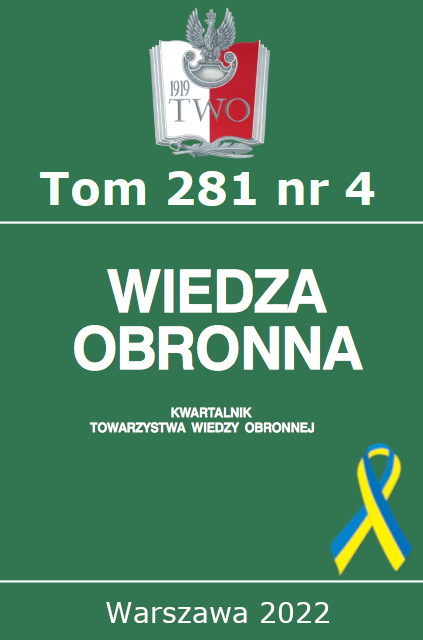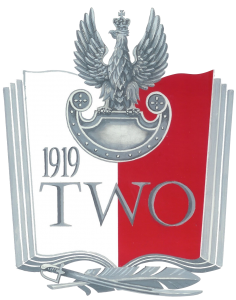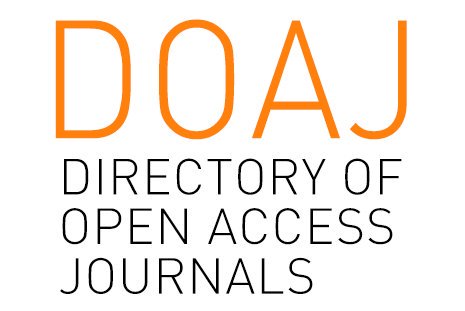THEORIES OF WAR IN PRACTICE: CAUSES AND TERMINATION (IN THE EXAMPLE OF THE SECOND KARABAKH WAR)
Abstrakt
Most military operations, military campaigns and wars in history have lasted longer than expected. Why do wars last longer than expected? In general, what factors determine the duration of the war? These are some of the questions that researchers think about the most. It should be noted that in order to draw reasonable conclusions about the duration of wars, they must be grouped according to their characteristics. Wars vary in intensity and scale. While some wars lasted for years, even decades, others lasted only a few days. Some wars involved only two countries, some took on a global scale. In some wars, limited battles took place and some have been engraved in history with heavy destruction. In many cases, while countries mobilize the whole society for war, some do not see the need for it. The article depicts the essence of the theories of war regarding the causes and termination, substantiates the link between them and highlights the factors that affect the duration of the war. The results of the analysis of the the Second Karabakh War and the conditions of peace have been presented. Opinions have been put forward about the outcomes of the war.
Bibliografia
Allotey, Sam, Mike Chesonis, Chaka Diarra, Terri Erickson, Paula Flavell, Rod Gregory, Hans Jerrell, Bruce Johnson, Karen Komar, Chris O'Hara, Denise Proctor, Maritza Rivera, Kay Russell, Eric Sepp, Maggie Woodward, Planning and execution of conflict termination, Air Command and Staff College, 1995.
Barringer, Richard, E Patterns of Conflict, Cambridge, Mass: The MIT Press, 1972.
Coccia, Mario, “Theories and the reasons for war: A survey”. Journal of Economic and Social Thought, Vol. 6, No. 2 (2019): 115-124. https://bit.ly/3fTVLn0.
Foster, James L. and Garry D. Brewer, And the clocks were striking thirteen: The termination of war, The Rand Corporation and Yale University, 1976.
Iskandarov, Khayal, Piotr Gawliczek, “Hybrid warfare as an instrument of political leverage (With a special focus on the South Caucasus)” in The Russian federation and international security edited by Miroslaw Banasik, Piotr Gawliczek and Agnieszka Rogozinska (Poland: Difin publishing house, 2020), 169-180.
Iskandarov, Khayal, Piotr Gawliczek, “The impact of social media on the war. Case study: The Second Karabakh War” in Information, Media, Security Environment edited by Miroslav Banasik, Piotr Gawliczek, Agnieszka Rogozinska (Warsaw: Difin, 2020), 162-178.
Iskandarov, Khayal, Sadi Sadiyev, “The escalation on the border between Armenia and Azerbaijan: Possible reasons and implications”, The European Geopolitical Forum, 06 August 2020. http://gpf-europe.com/forum/?blog=security&id=360.
Klingberg, Frank L. “The historical alternation of moods in American foreign policy”, World Politics, No 4, (1952): 239-273.
Kuo, Li-Sheng, “Sun Tzu’s War Theory in the Twenty First Century”, Master’s thesis, U.S. Army War College, 2007.
Legier-Topp, Linda, “War Termination: Setting Conditions for Peace”. February 2009. https://bit.ly/3Av7zWr.
Levy, Jack S. “The causes of war and the conditions of peace”, Annu. Rev. Polit. Sci. 1 (1998) :139-165. https://bit.ly/3r0aseC.
Peace, War and Numbers, Bruce M. Russet (ed.), Beverly Hills, Calif.: Sage Publications, 1972.
Pillar, Paul R. “The American Way of War and Delusions of ‘Victory’”. August 17, 2021. https://bit.ly/3nZNbrs.
Rubin, Uzi, “The Second Nagorno-Karabakh War: A Milestone in Military Affairs”, Mideast Security and Policy Studies No. 184. December 2020. https://bit.ly/3fTV0KG.
Rummel, Rudolph J. Understanding Conflict and War: War, Power, Peace, Beverly Hills, California: Sage Publications, 1979.
Slantchev, Branislav L. “How Initiators End Their Wars: The Duration of Warfare and the Terms of Peace”, American Journal of Political Science, Vol. 48, No. 4 (October 2004): 813-829.
Stein, Arthur A., Bruce M. Russett, “Evaluating War: Outcomes and Consequences” in Ted Robert Gurr eds. Handbook of Political Conflict: Theory and Research. New York: The Free Press, 1980. p. 399-422.
Tahirov, Rashad, Khayal Iskandarov, Sadi Sadiyev, “The Updated Madrid Principles in the “Karabakh Knot”, The European Geopolitical Forum, 2020 Nagorno-Karabakh Research Digest. How to Break the Current Deadlock in Nagorno-Karabakh Conflict Resolution: Strategic Dialogue on the Peace Process within a Boosted Peace Context? September 30, 2020. https://bit.ly/3ibHErW.
Tuck, Christopher, Confrontation, Strategy and War Termination Britain's Conflict with Indonesia, Routledge, 2013.
Tuck, Christopher, “Theoretical Perspectives on the Ending of Wars”, International Forum on War History: Proceedings. Sep 30, 2015 https://bit.ly/3H0xurb.
Griffith, Michael C. War Termination: Theory, Doctrine, and Practice (School of Advanced Military Studies, 1992).
Stanley, Elizabeth A. “War Termination in Theory and Practice”. 2009. https://doi.org/10.1515/9780804772372-013.
“Azərbaycan Ordusunun işğaldan azad etdiyi ərazilər – TAM SİYAHI”. https://bit.ly/3kpZqcd.
Piriyev, Heydər, Rəşad Tahirov, Xəyal İskəndərov, İkinci Qarabağ müharibəsi. Hərbi–siyasi təhlil Bakı: Hərbi Nəşriyyat, 2022.
Piriyev, Heydər, Rəşad Tahirov, Xəyal İskəndərov, “Müharibənin bitmə müddəti və sülh şərtləri (İkinci Qarabağ müharibəsinin nümunəsində)”, Hərbi bilik, No. 4 (2020).
Copyright (c) 2022 Khayal Iskandarov, Ender Guner, Pıotr Gawlıczek

Utwór dostępny jest na licencji Creative Commons Uznanie autorstwa – Na tych samych warunkach 4.0 Miedzynarodowe.








